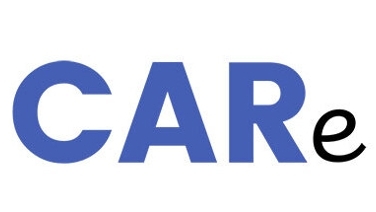Global Health Protection Programme of the Federal Ministry of Health
Date: 12/05/2025
News
Since the first adoption of its Global Health Strategy in 2013, Germany has been increasingly committed to strengthening health systems worldwide. In order to improve public health structures and, in particular, to prevent and jointly manage health crises such as Ebola Virus Disease in West Africa 2014-2016 or COVID-19, the German Federal Ministry of Health launched its Global Health Protection Programme (GHPP) in 2016. The Robert Koch Institute (RKI) plays a central role in the implementation of this programme. The German Federal Institute for Drugs and Medical Devices (BfArM), the Bernhard Nocht Institute for Tropical Medicine (BNITM), the German Federal Institute for Vaccines and Biomedicines (PEI), the German Federal Research Institute for Animal Health (FLI), the Research Center Borstel (FZB) and the German Central Committee Against Tuberculosis (DZK) are also implementing GHPP projects.
During the first phase from 2016 until 2022, the programme focussed on three topics:
- Joint management of disease outbreaks
- Strengthening international health actors such as WHO
- Preventing health emergencies through better implementation of the International Health Regulations and countering hospital-acquired infections.
Since 2021, the German Federal Ministry of Health has been funding additional projects through "GHPP – Corona Global" to strengthen operational capacity and address knowledge gaps related to COVID-19.
During the second programme phase (2023-2025), activities will focus on strengthening national, regional and global public health systems. In addition to further partnership-based capacity building for outbreak management, we will also address surveillance, laboratory diagnostics and infection prevention and control, issues of animal-human-environmental health (One Health) and digital approaches to outbreak prevention. The RKI implements 25 projects in the second programme phase, coordinated internally again by the Centre for International Health Protection (ZIG).
Further information
RKI projects in the current GHPP phase
-
ABCM (Assessing and Building Capacities: Madagascar Public Health System)
-
CARE (Capacity Building in Applied Public Health Research)
-
COPE (Community-based One Health Participatory and Empowerment Strategy for One Health Interventions)
-
EFFO-COE (Efficiency by Edification – Center of Excellence)
-
EMIS (Extending internet-based health and behavior surveys among MSM)
-
EMT TTT (Emergency Medical Teams Twinning, Training, Transfer of Knowledge)
-
FUTURE International UKR (Telemedicine support and intensive care capacity building)
-
IHR Summer School Revision
-
NCDI-MH_Surv (Strengthening Surveillance for NCD in the African Region)
-
NiCaDe II (NCDC: Capacity Development for Preparedness and Response for Infectious Diseases II)
-
PAcCI (Public Health Actions for Côte d’Ivoire)
-
PASQUALE (Partnership to Improve Patient Safety and Quality of Care)
-
ProTECt II (Project on Training for Public Health Emergency Operations Centres II)
-
Scale-up HIVHEP (Scaling up monitoring, control and elimination of HIV/AIDS and viral hepatitis)
-
SENSE (Strengthening National Immunization Technical Advisory Groups and their evidence-based decision making)
-
SGS (Strengthening Genomic Surveillance)
-
SPOT (Sequencing-based technologies for Pandemic Preparedness in Tunisia and neighboring countries)
-
TwiNit 2.0 (Namibia-RKI Twinning Project)
-
VRSA (Assessing and increasing vaccine readiness in Sub-Saharan Africa)
-
WASP (Western Balkan Strategic Partnership)
-
WHOCC-AMR (Lead Coordination of WHO AMR Surveillance Collaborating Network)
-
WHO Collaborating Centre for GOARN
-
XBM:TB (Cross-border management of tuberculosis between Poland and Germany)
















